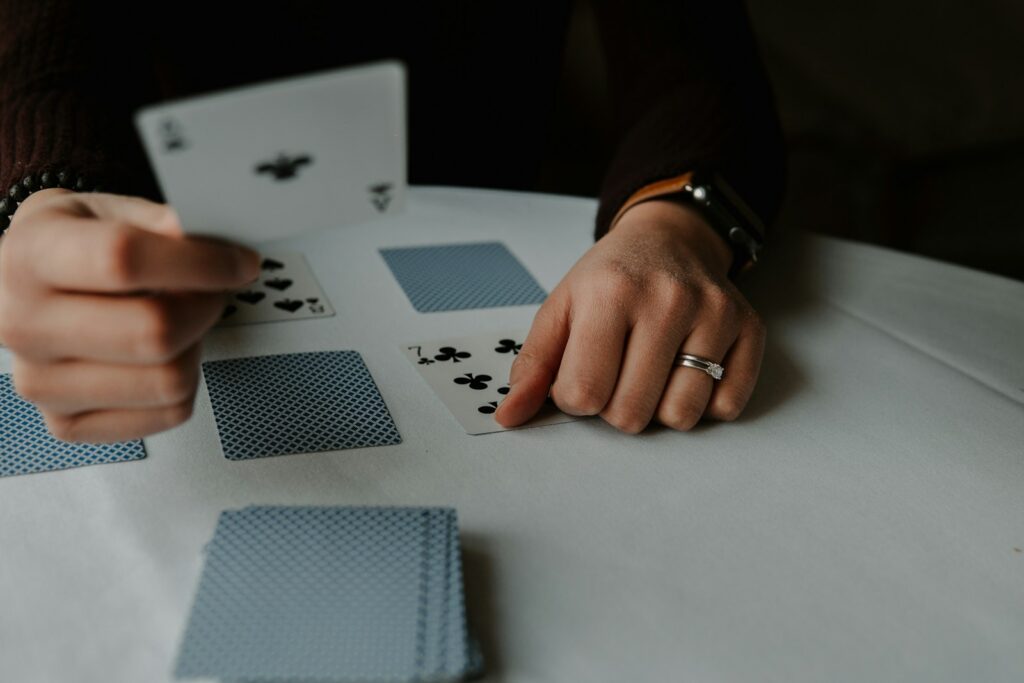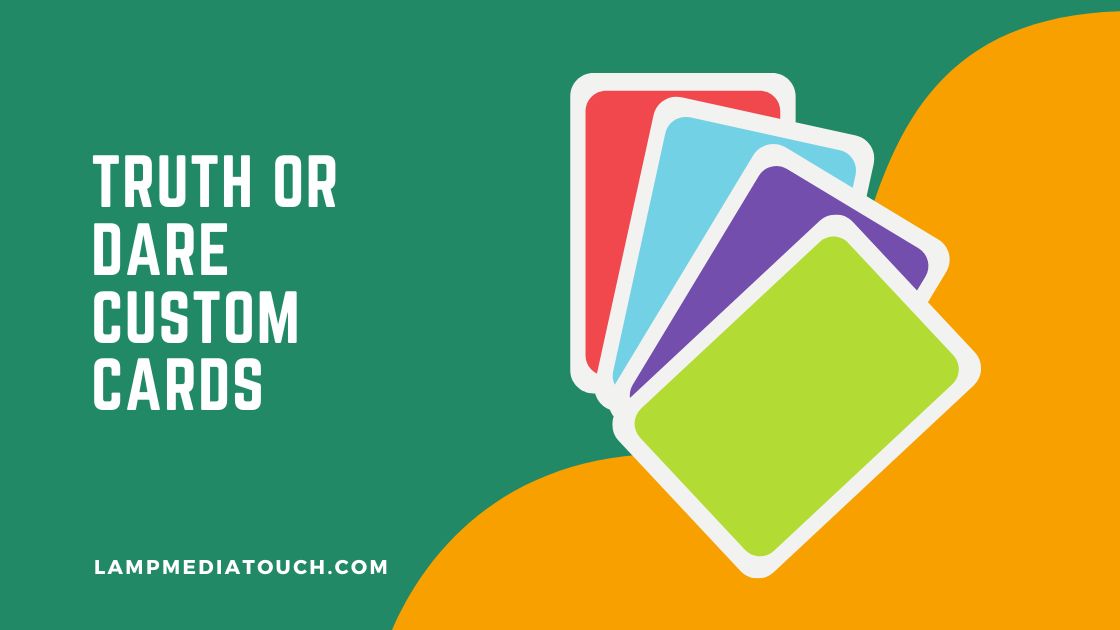More Than Just a Game
Truth or Dare has remained one of the most enduring social games in history, evolving through different cultures and time periods. Though often played for fun, it has the potential to test personal values, reveal hidden truths, and even strain relationships.
In recent times, its effects have been deeply felt in social circles, especially in Nigeria, where certain interactions resembling the dynamics of this game have led to public controversies, strained friendships, and emotional turmoil. While we will not directly reference current events, it is important to analyze how this game reflects human behavior, moral decision-making, and ethical boundaries.
More importantly, as graphic designers and digital printing professionals, there is an opportunity to structure Truth or Dare into a well-organized, meaningful, and engaging game experience through the use of professionally printed question cards, rule books, and branded souvenirs.
Table of Contents
By the end, we will understand how Truth or Dare is more than just a party game—it is a reflection of personal accountability, trust, and social responsibility.
1. The Origins and Evolution of Truth or Dare
Truth or Dare has existed for centuries in various forms. While today it is mostly associated with parties, friendships, and social gatherings, its early versions had serious moral and social implications.
Ancient Moral Games and Social Experiments
Long before the modern version of Truth or Dare, societies engaged in structured activities where individuals were expected to reveal personal truths or prove their bravery through challenges.
In traditional African settings, elders used moral storytelling games to test young people’s honesty, courage, and ability to handle difficult decisions. These activities were meant to teach:
- Integrity in speech – Encouraging truthfulness, even in difficult situations.
- Responsibility for one’s actions – Ensuring people owned up to their mistakes.
- Problem-solving skills – Challenging individuals to find ethical solutions.
European Parlor Games and the Rise of Truth or Dare
During the Victorian era, English high society played a game known as Truth or Punishment, where participants either answered personal questions or faced a task. Over time, this transformed into the modern Truth or Dare, which became a popular game among teenagers and adults alike.
With the rise of social media and digital interactions, Truth or Dare has taken on a new and sometimes dangerous form, with individuals recording and broadcasting challenges online, often with unintended consequences.
While the game remains popular, it is clear that it can be both constructive and destructive, depending on how it is played.
2. The Ethical and Social Impact of Truth or Dare
Despite its lighthearted nature, Truth or Dare can challenge social norms and put personal values to the test.
The Thin Line Between Fun and Harm
At its core, the game forces players into a social dilemma—either expose a hidden truth or perform an action that may be embarrassing, risky, or even damaging. While some people enjoy the thrill, others may feel pressured into revealing sensitive information or doing something they regret.
Unintended Consequences and the Need for Ethical Boundaries
Many real-life scenarios have shown how the game can lead to emotional harm, damaged relationships, and public humiliation. The risk increases when:
- Participants feel forced to answer deeply personal questions.
- Dares involve dangerous, unethical, or illegal activities.
- Boundaries are ignored, leading to lasting social and emotional consequences.
While Truth or Dare can be an icebreaker or a tool for bonding, it must be structured responsibly, ensuring that it remains a safe and positive experience.
3. Using Truth or Dare in Constructive Settings
Despite its controversies, Truth or Dare can be used positively in various social settings, provided that it is designed with ethical considerations in mind.
Truth or Dare in Churches and Religious Groups
Faith-based organizations have adapted the game to encourage spiritual growth and discussion. Instead of invasive personal questions, religious Truth or Dare versions use:
- Bible-based truths – Questions about faith, morality, and personal convictions.
- Encouraging dares – Acts of kindness, scripture memorization, or small charitable tasks.
When structured well, Truth or Dare can be a fun and engaging way to reflect on values without crossing ethical lines.
Truth or Dare in Corporate Training and Team Building
Businesses and organizations now use modified versions of Truth or Dare to enhance teamwork, leadership, and ethical decision-making. Instead of silly challenges, the game includes:
- Professional truths – Questions about workplace ethics and career development.
- Skill-based dares – Public speaking tasks, leadership challenges, or strategic problem-solving.
By shifting the focus to personal and professional growth, Truth or Dare becomes an engaging tool for self-improvement and corporate bonding.
4. The Role of Printing and Graphic Design in Truth or Dare
A key challenge with Truth or Dare is that, when played informally, the questions and dares can be random, inappropriate, or unstructured. This is where digital printing and professional design play an important role.
Custom-Printed Truth or Dare Cards

Instead of relying on spontaneous or questionable questions, printed Truth or Dare cards provide pre-set, well-thought-out prompts tailored to different audiences.
- General Audience Cards – Fun, lighthearted, and family-friendly.
- Faith-Based Cards – Focused on spiritual growth and moral reflection.
- Corporate & Team-Building Cards – Encouraging self-improvement and ethical leadership.
Branded Souvenirs and Themed Game Materials
Churches, schools, and businesses can brand Truth or Dare materials with their logos and messages, turning them into interactive learning tools and keepsakes. These may include:
- Booklets with game instructions and ethical guidelines.
- Customized scoreboards and rule sheets.
- Branded stickers or souvenirs as rewards for participation.
When the game is professionally designed and printed, it ensures a structured, positive, and impactful experience.
Conclusion: A Game That Reflects Society
Truth or Dare is more than just a party game—it is a social mirror that challenges our honesty, trust, and decision-making skills.
While it can be harmful if misused, when played with clear ethical boundaries and structured question cards, it can be a powerful tool for engagement, learning, and personal growth.
Would you like to create custom Truth or Dare cards or branded souvenirs for your organization? Contact LampMediaTouch today for high-quality printing solutions tailored to your needs!
What is Truth or Dare?
Truth or Dare is a popular party game where players are asked either to answer a truth question or complete a dare. It’s a fun, interactive game that can be tailored for any setting—whether it’s a casual social gathering, a faith-based event, or a corporate team-building activity. Custom-designed Truth or Dare cards can help keep the game focused and appropriate for the audience.
What is the best version of Truth or Dare for structured play?
The best version of Truth or Dare is one that is well-structured and tailored to the participants. For family, church, or corporate settings, using custom-printed question cards helps ensure the game remains engaging and appropriate while encouraging meaningful conversations or team-building exercises.
What are 10 good Truth questions for Truth or Dare?
Here are 10 good Truth questions to keep the game interesting:
What is the hardest decision you’ve ever had to make?
If you could live anywhere in the world, where would it be and why?
What’s something you’ve never told anyone?
For a faith-based setting, you could ask:
What Bible verse has impacted you the most?
Have you ever had a life-changing experience because of your faith?
What are some safe and ethical dares for Truth or Dare?
Safe and ethical dares include tasks like sharing a positive affirmation, telling a funny story, or even leading a brief prayer if the game is faith-centered. These dares ensure players feel comfortable while keeping the spirit of the game alive.
Where can I get custom Truth or Dare cards for printing?
If you’re looking for custom-designed Truth or Dare cards for any event, LampMediaTouch offers high-quality printing services for churches, schools, and corporate events. Let us help make your game fun, engaging, and purposeful!




